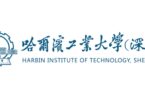As the discussion caused by artificial intelligence chat robot ChatGPT continues to heat up, the science and technology circle is welcoming the new buzz. Baidu, 360, iFlytek, Alibaba, JD.com, NetEase and other Chinese tech giants have made great efforts to seize the opportunity to create the first “Chinese version of ChatGPT”.
ChatGPT was developed by OpenAI, a software company backed by Microsoft. From the current common dialogue, the biggest highlight of ChatGPT is its intention recognition and its ability to understand natural language. To do this, powerful natural language processing technology is the key.
On February 7, Baidu announced that it would launch its own ChatGPT-like project named “Ernie Bot”. On the same day, Qihoo 360, a Chinese internet security company, also said that it planned to launch prototype products based on ChatGPT-like technology as soon as possible.
February 8 witnessed a number of companies announcing their entry into this field. A senior technical expert at Alibaba revealed that the company’s DAMO Academy is developing ChatGPT-like dialogue robots, which are now open to current employees for testing. Alibaba may combine its AI large model technology with Dingtalk, its office tool. Alibaba confirmed the news.
He Xiaodong, vice president of JD.com, said that ChatGPT is an exciting frontier exploration, while JD Cloud’s artificial intelligence application platform “Yanxi” is a large-scale commercial customer service system. Yanxi will integrate its previous industrial practice and technology accumulation to launch an industrial version of ChatGPT – ChatJD.
IFlytek, which creates voice recognition software, started the task of generative pre-training large models in December 2022, and its AI learning machine will become the first product based on this technology, which will be released on May 6.
On February 9, Youdao, a search engine released by Chinese internet company NetEase, said that it had invested in the research and development of AI-generated content (AIGC) in educational scenes, including but not limited to AI oral teachers, Chinese composition scoring and evaluation, among others. “The final form of the product is still under discussion and needs to match the needs of users. Intelligent hardware and online courses are in the consideration scope,” NetEase stated. Tencent also said that it is developing its own version of ChatGPT and AIGC.
On February 13, Wang Huiwen, the former co-founder of food delivery giant Meituan, announced that he would enter the AI field and set up Beijing Lightyear Technology Co., Ltd., with an investment of $50 million and a valuation of $200 million. His own funds accounted for 25% of the shares, and the remaining 75% of the shares were used to invite top R&D talents. The new company hopes to recruit top R&D talents recognized by the industry, people with a fanatical belief that Al will change the world and benefit mankind. According to Wang, the next round of financing has been subscribed to by top venture capital institutions for $230 million.
Investment bank UBS predicted that the monthly active users of ChatGPT reached 100 million in January this year, and it took only 2 months for it to achieve this goal. Before that, TikTok took about 9 months, which made ChatGPT the fastest-growing consumer application so far.
In China, ChatGPT-like products have not yet been born, but the money has been earned by imitating ChatGPT. Due to the relatively cumbersome registration process, a series of fake ChatGPT appeared in the domestic market. These products act as intermediaries for two-way connections, forwarding users’ questions to ChatGPT, and then forwarding real replies to users.
SEE ALSO: Luxury E-Commerce Platform Secoo Stock Price Jumps After ChatGPT Announcement
Some industry insiders believed that China has the largest number of Internet users in the world, broad application scenarios and obvious advantages in data accumulation. Although there is no big model in the world that can compete with ChatGPT’s amazing performance, the consensus in the industry is that the gap can be filled in about two years. According to the report of Guangzhui Tech, Liu Shengping, vice president of R&D of Unisound, an AI startup in China, believes that the actual gap needs only about one year.
Sign up today for 5 free articles monthly!






